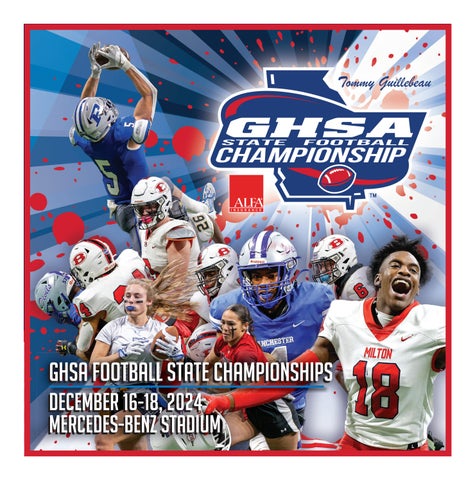Rec Sports
Far-right fight groups endorse ‘youth clubs’ targeting US young men and boys | Far right (US)
A national network of American neofascist fight clubs is endorsing youth-oriented offshoots aimed at grooming the next generation of racist activists. So-called “active clubs” have proliferated across the US and are a combination of fitness and mixed martial arts groups that often espouse neo-Nazi and fascist ideologies, openly taking their historical cues from the Third […]
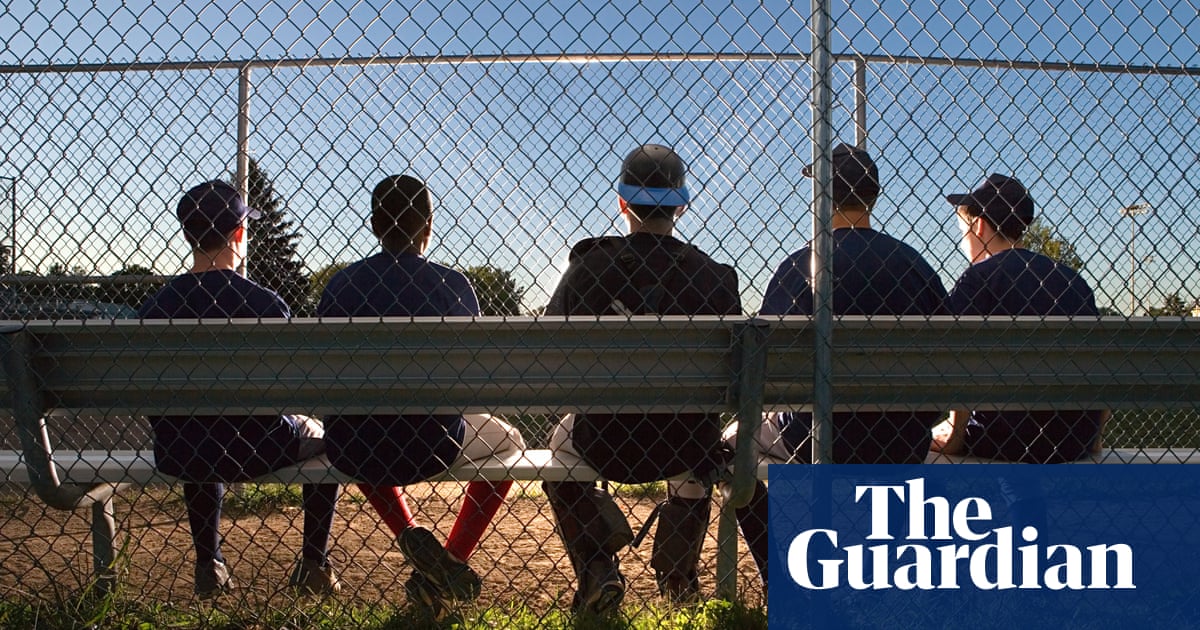
A national network of American neofascist fight clubs is endorsing youth-oriented offshoots aimed at grooming the next generation of racist activists.
So-called “active clubs” have proliferated across the US and are a combination of fitness and mixed martial arts groups that often espouse neo-Nazi and fascist ideologies, openly taking their historical cues from the Third Reich’s obsession with machismo and European soccer hooliganism.
Active clubs have emerged as perhaps the most dangerous form of far-right political organizing today. With links to other militant organizations, including Patriot Front, they encourage a seemingly mainstream version of masculinity, layered with ideologies promoting a US race war and using the popularity of the Ultimate Fighting Championship (UFC) as a gateway to recruiting.
Earlier this month, their main Telegram account, endorsed “youth clubs”, which are chapters beginning to spring up online across the country, showing pictures of 18-year-olds and under engaging in mixed martial arts, racist meme-ing, and posts referencing genocidal and bigoted literature.
“Youth clubs are for those under 18 that still want to get active,” said the recent active club post with thousands of views, linking to the central account of all youth clubs.
By all appearances, these youth clubs are proliferating. On Telegram alone, there are accounts showing nationwide chapters with photos of teens between the ages of 16 to 18 in Florida, Georgia, Mississippi, Alabama, Pennsylvania, Ohio, Indiana, the New England states, New York, New Jersey, Pennsylvania, Virginia, Delaware, Maryland, Washington DC, lowa, Minnesota, Nebraska, South Dakota, Wisconsin and Michigan, among others.
The chapters have close to a thousand followers in total and in some cases list the same recruitment contact, suggesting a certain level of national coordination and vetting – an important aspect of far-right recruiting done to prevent against police or antifascist infiltration.
“Unapologetically Pro White”, posted one of the youth clubs, adding they were also “American Nationalist”.
Combined with the massive popularity among teen boys of the Tate brothers, mixed martial arts enthusiasts in their own right, young men and boys have emerged as the prime targets for far-right recruitment in recent years.
“The youth clubs are part of the same concept of active clubs’ white supremacism ‘3.0’ strategy: a decentralized movement focused on combat sports, fitness, propaganda activities, and building local groups,” said Joshua Fisher-Birch, an analyst of the American far right who has documented its rise for nearly 10 years.
“The youth clubs are self-described white nationalist activist groups for young men 18 and younger who train in combat sports and participate in extreme right propaganda activities.”
Their direct links to active clubs aren’t a secret or hidden, either.
Fisher-Birch continued: “Several youth club Telegram channels have also shared posts from active club-affiliated accounts. Additionally, youth club chapter logos are modeled on active club symbols. The logos are nearly identical in some cases.”
after newsletter promotion
The network of active clubs’ original founder, Robert Rundo, pleaded guilty in 2024 to conspiracy to riot at 2017 political rallies in California. During that period, he was the leader of the Rise Above Movement, a violent neo-Nazi gang that promoted combat sports and physical assault of perceived enemies. Four of its members were charged for their part in the infamous 2017 Unite the Right rally in Charlottesville, Virginia.
Rundo and other members of the active clubs network made it clear in the past that they saw young men and boys as the next and important frontier for building the new American fascist movement.
Writing in a 2022 post on one of its main websites Rundo and others described how their “tools of persuasion” can draw underage boys to join them. Along with flyers and stickers of local areas with their Nazi propaganda they told followers to “target boxing and MMA tournaments, gyms, and motocross courses”, but then went further.
“Ground-level intelligence collection might then inform that same activist crew that changing demographics at a local high school have led to gang-beatings of minority White youth,” they said. “The cunning and resourceful activists see this news as [an] opportunity for a campaign focusing on the importance of a Brotherhood of young White men having each other’s backs.”
During the Third Reich, Adolf Hitler made it a staple of his regime to create the Hitler Youth organization for minors to learn combat and survivalism skills under the guise of self-improvement and nationalist pride. Ever since, modern neofascists and Nazis like active clubs, have always placed particular emphasis on securing the next generation of white supremacy.
“You will grow up to be men,” Hitler once said at one of his German rallies for his young acolytes.
Rec Sports
Boys Are Playing Less Sports, and Losing Out
I assume it’s just the acidic mix of sweat and cheap hair gel streaming down my forehead that stings my eyes. But it’s teenage heartbreak playing out at center ice. My anger feels tangible. Rage knots in my throat as I wait in the postgame handshake line. Yet when I finally grip the hand of […]
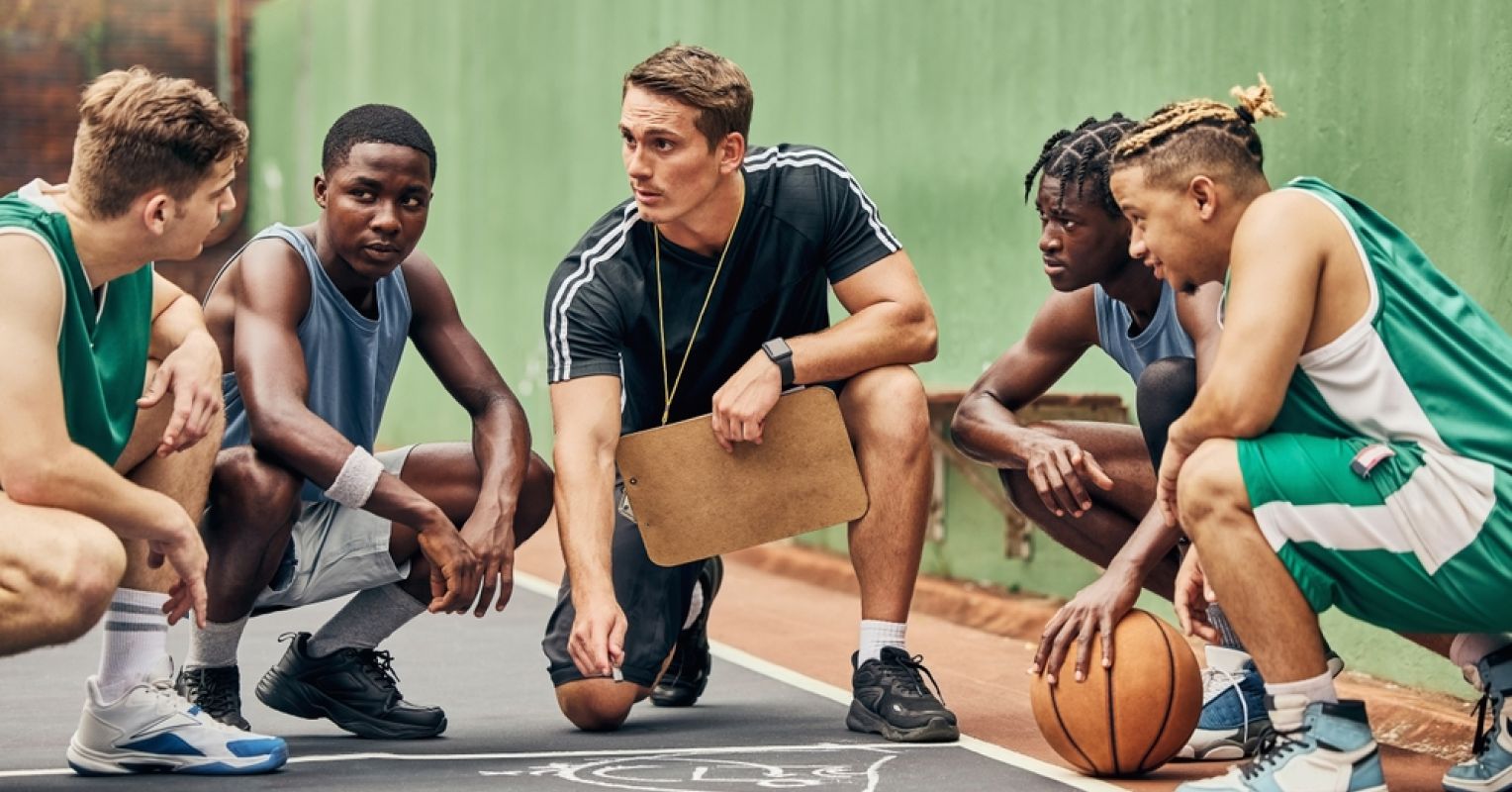
I assume it’s just the acidic mix of sweat and cheap hair gel streaming down my forehead that stings my eyes. But it’s teenage heartbreak playing out at center ice. My anger feels tangible. Rage knots in my throat as I wait in the postgame handshake line. Yet when I finally grip the hand of my hockey opponent, whose elbow popped my jaw, something shifts and my thirst for vengeance ebbs.
In his eyes, I can see a kid like me, with homework to get to.
Those memories of emotional strain, decades ago, stand in contrast to the curated, frictionless experiences that I worry define so much of boys’ lives today. In an era of AI, video games, cheap dopamine, solitude, porn, sports betting and fantasy sports, the frictions of youth sports feel more urgent. On the ice, field, or court, you can’t scroll away from an elbow or a benching; you can’t summon talent with a sharper ChatGPT prompt; you can’t order grit online; you can’t deny the limits of your genetics or preparation.
Striving to win, alongside other boys on a shared mission, remains a dopamine high hard to attain elsewhere. And even though losing a meaningful game, injuries, and toxic competitiveness all hurt, these experiences are processed and spread across a team instead of being stomached alone.
Beyond physical fitness, youth sports – regardless of the competition level – can be a pathway to identity formation, self-efficacy, bodily awareness, and tempering emotional highs and lows that boys need. Sports — with the mandate to move, then move on — should belong to all boys, rich or poor, highly athletic or not. However, youth sports participation has declined among boys over the last decade. Data suggests that while American boys are playing sports at lower rates, girls’ participation remains stable. The downward trend among boys is disheartening, especially as it’s more pronounced among low-income youth, according to a report from the American Institute for Boys and Men (AIBM). Only 25 percent of low-income boys participate in sports, while the overall participation rate for boys is 53 percent.
With boys and young men falling behind in educational achievement and measures of mental health, sports emerge as an valuable domain in which to practice rebounding from setbacks.
Why Are Boys Playing Fewer Sports?
AIBM’s report uses recent data to shed light on why low-income boys may be playing sports less, including:
- Increasing costs
- Academic ineligibility
- Scarcity of coaches
- Less casual play with an increase in sports specialization
- Early sports specialization leading to burnout, injuries, and fewer multisport athletes
- Screen time; 61% of teenage boys play video games daily
- Lingering impact of COVID program closures
- Increase in concussion concerns
Resilience, Learned Relationally
Participation in organized sports is linked to reduced anxiety and depression, and its effect seems to be greater in team sports. For less advantaged youth, research suggests that sports can provide social and emotional benefits.
Resilience is the ability to “weather and recover” from adversity. Organized team sports can be a level playing field where a kid’s effort is rewarded, unlike schools and broken social systems that may be stacked against them. For a fidgety boy on the brink of giving up, bouncing back may best be learned in action, embodied, alongside peers and coaches.
One study found that sports, when combined with supportive relationships, can help kids overcome the harmful effects of abuse, neglect, or growing up around addiction; another demonstrated that teens who play sports tend to have greater self-control, stronger social skills, and higher empathy than those who don’t, especially if they play multiple sports.
The Much-Needed Masculinity of Bouncing Back
An overlooked aspect of masculinity involves the guts to take your shot and then miss (whether it’s getting cut from a team or denied after asking a girl out); to take an “L” like a champ and say, “My bad.”
This is exactly what youth sports can teach at a time when many boys are falling behind. Sports offer an arena in which to calibrate dominance and sensitivity, when to fight or finesse. Today, a boy, shaped by the algorithms he’s fed, may not tune into male leaders who are relatable and emotionally grounded. In their place are wealthy guys or “manfluencers” who don’t own their missteps, accept results, or make concession speeches.
Not backing down, hinting at conspiracy, crying foul, and willful denial are confessions of insecurity made with bravado. But a real team doesn’t pretend you won when the scoreboard says otherwise. That lesson deepens when boys watch grown, professional athletes, after a long run in the playoffs, line up to shake hands, battered but still embracing their opponents. From this, they absorb a masculinity rooted in resilience, accountability, and grace. A boy recognizes: I, too, can strive hard and accept loss.
Sport and Competition Essential Reads
From the Field to Real Life
Does sports participation lead to resilience, or are resilient kids more likely to participate in sports? Data indicates it runs both ways. Some studies find that resilience gained in playing sports can transfer to resilience in other parts of life, but only with deliberate reflection and meaning-making. Research suggests resilience is a dynamic process rather than a static trait, meaning that it evolves and changes over time, depending on the situation.
Perhaps boys can better learn to bounce back with the help of male teachers and/or coaches who place losing and winning in context, and who model emotional intelligence with skillful communication (rather than barking orders). Communities could invest more in free weekend leagues staffed by volunteer coaches to help organize athletic competition without financial barriers.
The current trend of specialization in youth sports is worrying. It’s important to reduce youth sports costs through lower fees and to expand casual, non-competitive play options as well. Just as income ought not impact access to sports, neither should athleticism.
Let’s create opportunities for boys to fall and get back up, not just on playing fields but relational ones, where humility and community can take root.
Rec Sports
Local ballers bring the heat to Laurel in new charity tournament
Aldrich Sports League and NoFo Kid Connect brought the best of the best to Laurel Saturday.(Credit: Daniel Franc) The Aldrich basketball courts in Laurel were full of quick passes, pivots and picks-and-rolls in the inaugural Community Kids Basketball Tournament Saturday. In a collab between the Aldrich Sports League of Mattituck and NoFo Kid Connect of […]
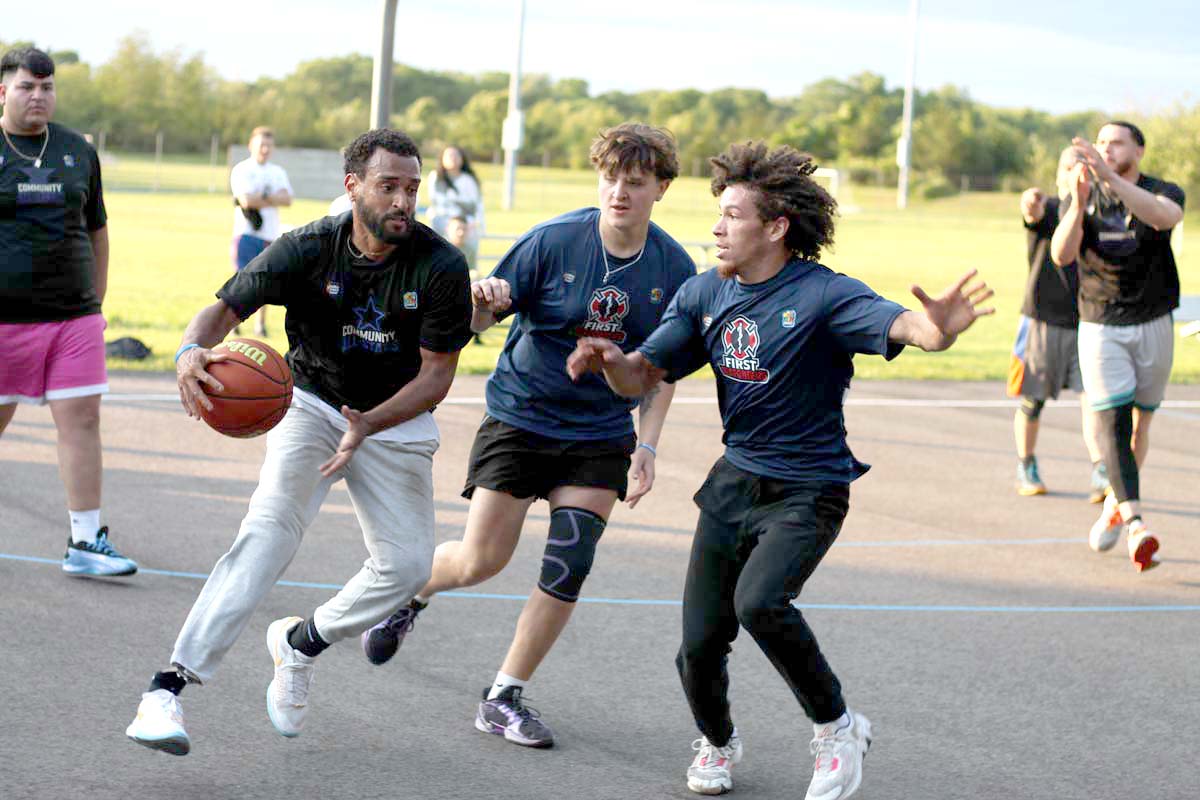

The Aldrich basketball courts in Laurel were full of quick passes, pivots and picks-and-rolls in the inaugural Community Kids Basketball Tournament Saturday. In a collab between the Aldrich Sports League of Mattituck and NoFo Kid Connect of Greenport, four teams chock full of local basketball talent with community kids mixed in went head-to-head. Each game was exciting, with rapid lead changes and a few of the decisions coming down to the buzzer.
The concept for the community tournament and fundraiser came from Joe Aiello and Francis Buonaiuto of Aldrich Sports League. They said they wanted to jump start their third season of the 5 vs. 5 soccer league and other tournaments with a fundraiser.
Destiny Salter of NoFo Kid Connect said the two contacted her organization because of their successful Cops Vs. Kids basketball game in January and their Greenport Summer Basketball Tournament — this year’s happening July 26. The proceeds, still being counted at press time, are destined for North Fork community youth sports and scholarships for graduates involved with athletics.
Photos by Daniel Franc
1 | 50
Aldrich Sports League and NoFo Kid Connect brought the best of the best to Laurel Saturday.(Credit: Daniel Franc)
Beyond the captivating action of the basketball tournament, the day included family fun like a dunk tank and half-time show, burgers and dogs cooked to order, raffles and a host of goodies available from Black Sheep Bagels in Jamesport.
Both organizations considered the Community Kids Basketball Tournament a success and plan to build it into an annual event moving forward. They each have lots going on this year with Aldrich Sports League’s King of the Campo and King of the Court soccer and basketball tournaments happening in Laurel and NoFo Kid Connect’s youth basketball clinics happening in Greenport.

Congratulations to the champions, the First Responders. Put it way down here so as not to spoil it. (Credit: Angela Colangelo)
Rec Sports
Saturday is Kids Fishing Day at Pocket Park | News, Sports, Jobs
Saturday is Kids Fishing Day at DNR Pocket Park — marking the 32nd anniversary of the annual Kids Fishing Day this year. The day of fun, fishing and families will be held Saturday, June 7 at the Michigan Department of Natural Resources Pocket Park, located on the Upper Peninsula State Fairgrounds in Escanaba. Registratioan for […]

Saturday is Kids Fishing Day at DNR Pocket Park — marking the 32nd anniversary of the annual Kids Fishing Day this year.
The day of fun, fishing and families will be held Saturday, June 7 at the Michigan Department of Natural Resources Pocket Park, located on the Upper Peninsula State Fairgrounds in Escanaba.
Registratioan for Kids Fishing Day will be from noon to 1:30 p.m. EDT and the event will run until 3 p.m. All activities are free of charge and open to youth ages 16 years old and younger.
“We are excited to again hold our fishing event at the Pocket Park,” said Brenda Madden, longtime Kids Fishing Day team member and organizer. “It offers plenty of space for most all the traditional fun favorites at Kids Fishing Day events, plus some new activities; and the Pocket Park offers a beautiful natural-like setting right in the middle of Escanaba.”
Familiar activities returning include bluegill fishing, minnow races and face painting, along with free food and raffle prizes.
Greg Karch certified angler instructor and founder of the non-profit organization Learn 2 Fish With Us, will be returning to the event this year to teach kids how to cast a fishing line and tie fishing knots.
Karch’s organization has educated more than 50,000 anglers in Wisconsin since 2006 and has hosted nearly 300 fishing workshops, including Kids Fishing Day at Camp 7 where he offered Backyard Bass for youngsters.
In addition, Smokey Bear will be wandering the grounds and the DNR will have a scavenger hunt and opportunities for kids to learn how to shoot at the Pocket Park’s archery and pellet gun ranges.
This year’s Kids Fishing Day event will be held in conjunction with the DNR’s free fishing weekend. Camping is available on the fairgrounds. Contact the Delta County Chamber of Commerce.
The DNR Pocket Park is located nearest Gate No. 1 at the fairgrounds, which can be accessed from 12th Avenue North.
Partners include the Bay de Noc Great Lakes Sports Fishermen, Inc., Michigan Department of Natural Resources and the USDA Forest Service.
For more information, or if you would like to volunteer to help at the event, please contact Brenda at 906-286-1348.
Rec Sports
Making Youth Sports Travel a Win for the Whole Family
The roar of the crowd, the thrill of competition, the camaraderie among teammates – youth sports offer invaluable experiences for kids. But for the families who cheer them on from the sidelines, the reality often involves a whirlwind of travel, early mornings, and logistical puzzles. From baseball diamonds in the spring to cheer competitions in […]

The roar of the crowd, the thrill of competition, the camaraderie among teammates – youth sports offer invaluable experiences for kids. But for the families who cheer them on from the sidelines, the reality often involves a whirlwind of travel, early mornings, and logistical puzzles. From baseball diamonds in the spring to cheer competitions in the winter, the year-round nature of youth sports means families are frequently on the road. IHG Hotels & Resorts aims to be a valuable teammate for traveling sports families, offering a diverse portfolio of hotel options and price points designed to make youth sports travel a breeze.
Conveniently located across the U.S. and Canada, IHG’s brands are tailored to accommodate the unique needs of teams and their biggest fans. Here are some winning tips for families hitting the road for youth sports:
Fuel Up for Success:
- Embrace the Free Breakfast: Kids Eat Free at Holiday Inn and the entire family can enjoy complimentary hot breakfasts offered at Holiday Inn Express, Garner and Atwell Suites. This not only saves money but also precious time, ensuring everyone starts their busy game day with a nutritious meal. With options ranging from hearty scrambled eggs to lighter choices like fresh fruit and yogurt, there’s something to please even the pickiest eaters.
Make Space and Save Time:
- Consider a Suite Life: For longer tournaments or when traveling with multiple siblings, apartment-style accommodations like Staybridge Suites and Candlewood Suites can be a game-changer. Separate living areas provide much-needed space to relax after a long day, while fully equipped kitchens offer the flexibility to prepare some of your own meals and snacks, saving money and catering to dietary needs. The free onsite laundry facilities are a lifesaver for those inevitable muddy uniforms and spilled drinks.
Prioritize Rest and Recovery:
- Sleep Like a Champion: A good night’s sleep is crucial for both athletes and their cheering squad. Hotels like avid prioritize sound sleep with high-quality mattresses and bedding, a choice of firm and soft pillows, blackout roller shades, and thoughtful design to minimize noise disruption. Ensuring everyone is well-rested can make a significant difference in energy levels and overall enjoyment.
Smart Spending and Future Adventures:
- Leverage Loyalty Programs: Make your travel dollars work harder for you by booking with IHG One Rewards. Earn points with each stay that can be redeemed for future family getaways, turning those sports trips into opportunities for well-deserved vacations.
- Stay Longer, Save More: For those extended tournament weekends, look for deals like IHG’s offer to save up to 15% on stays of three or more nights. These savings can help offset the costs associated with travel.
By choosing accommodations that cater to the unique needs of families and implementing smart travel strategies, you can transform the experience from a logistical challenge into a memorable adventure for the whole team – both on and off the field. So pack your bags, prepare to cheer, and remember that with a little planning, you can conquer the sidelines and make every tournament a win.
Rec Sports
6/3/25: Chubby Mermaids – NowKalamazoo
Things to do in Kalamazoo Sponsored by Check out events by category: Kalamazoo Farmers Market – Kalamazoo Farmers Market6/3, 8:00 AM Wallace & Gromit and Shaun the Sheep: Sheer Genius! Exhibit – Kalamazoo Valley Museum6/3, 10:00 AM Edison Blossoms – Edison Neighborhood Association6/3, 11:00 AM Bridge Club – Richland Community Library6/3, 12:00 PM Craft Stitching Group […]

Things to do in Kalamazoo
Sponsored by

Check out events by category:
Kalamazoo Farmers Market – Kalamazoo Farmers Market
6/3, 8:00 AM
Wallace & Gromit and Shaun the Sheep: Sheer Genius! Exhibit – Kalamazoo Valley Museum
6/3, 10:00 AM
Edison Blossoms – Edison Neighborhood Association
6/3, 11:00 AM
Bridge Club – Richland Community Library
6/3, 12:00 PM
Craft Stitching Group – Parchment Community Library
6/3, 1:00 PM
Memory Wire Bracelet Class – South County Senior Center
6/3, 1:00 PM
Fresh on Q: Texas Township Farmers’ Market – Joyce I. Neubauer Farmers’ Market Pavilion
6/3, 4:00 PM
Food Truck Tuesdays On The Road – Midtown Fresh Market
6/3, 5:00 PM
Skin Spot Check Clinic – WMed Health Family Medicine
6/3, 5:30 PM
Kalamazoo Premier Chess Club – Urban Alliance
6/3, 6:00 PM
No Shelf Control: a Graphic Novel Book Club – Kalamazoo Public Library, Central
6/3, 6:00 PM
Trivia – Sit and Stay Winery
6/3, 6:00 PM
Fiber Arts Group – Comstock Township Library
6/3, 6:00 PM
Celery Flats Women’s Ride – Celery Flats
6/3, 6:00 PM
Trivia Night @ Louie’s Trophy House – Louie’s Trophy House
6/3, 7:00 PM
Best Trivia Ever Tuesdays – Shakespeare’s Pub
6/3, 7:00 PM
Laugh Draft – Stand Up Comedy – Apoptosis Brewing Co.
6/3, 7:00 PM
Survey Feud – Revel & Roll West
6/3, 7:00 PM
“Twelve Angry Men” – Barn Theatre
6/3, 8:00 PM
Baby/Toddler Storytime at Portage District Library – Portage District Library
6/4, 9:30 AM
Baby Prom – Portage District Library
6/4, 9:30 AM
Village Playdate and Diaper Giveaway – Rootead
6/4, 10:00 AM
Wallace & Gromit and Shaun the Sheep: Sheer Genius! Exhibit – Kalamazoo Valley Museum
6/4, 10:00 AM
KYDNet Summer Communities of Practice Workshop for Youth Development Advocates – Kalamazoo Civic Theatre, Carver Center
6/4, 10:00 AM
Card Groups: Hand & Foot – Richland Area Community Center
6/4, 11:30 AM
Card Groups: Euchre – Richland Area Community Center
6/4, 12:00 PM
Ping Pong – Richland Area Community Center
6/4, 1:00 PM
String Methods Class Concert – Kalamazoo College, Dalton Theatre
6/4, 1:45 PM
Richland Farmers’ Market – Richland Area Community Center
6/4, 3:00 PM
Applied Recital – Kalamazoo College, Light Fine Arts Building
6/4, 4:10 PM
Youth & Teen Creative Workshops – Kalamazoo Civic Theatre
6/4, 5:30 PM
Beats on Bates – Bates Alley
6/4, 5:30 PM
Wednesday Game Night – Main Street Pub, West Main
6/4, 6:00 PM
Wednesday Night Ride – Kal-Haven Trailhead
6/4, 6:00 PM
Arcadia Creek Festival Place Open House – Arcadia Creek Festival Place
6/4, 6:00 PM
Monarch Waystation Presentation & Tour – Portage District Library
6/4, 6:30 PM
Trivia in the Taproom – Apoptosis Brewing Co.
6/4, 7:00 PM
Music Bingo Night – Main Street Pub Vicksburg
6/4, 7:00 PM
Sporcle Trivia at Brewery Outré – Brewery Outré
6/4, 7:00 PM
Karaoke Bingo – Presidential Brewing Co.
6/4, 7:00 PM
Kalamazoo FC Women vs Detroit City FC – Mayors’ Riverfront Park
6/4, 7:00 PM
LFG Trivia Night – LFG Gaming Bar
6/4, 7:00 PM
International Percussion Ensemble – Kalamazoo College, Dalton Theatre
6/4, 7:00 PM
Open Mic Night @ Louie’s Trophy House – Louie’s Trophy House
6/4, 8:00 PM
“Twelve Angry Men” – Barn Theatre
6/4, 8:00 PM
Drag King Pride Trivia – Bell’s Eccentric Cafe
6/4, 8:00 PM
Extreme Karaoke – Shakespeare’s Pub
6/4, 8:30 PM
See more upcoming events
Do you have an event you think we should list? Submit it
Rec Sports
Annika Sorenstam’s sports mom advice for navigating youth sports
Cooper Flagg’s mom shares her best tips for parents navigating youth sports Mackenzie Salmon sat down with Cooper Flagg’s mom Kelly to talk about how she successfully navigated the world of youth sports. Sports Seriously Have you been this kid? “I wouldn’t raise my hand in class to answer a question in case I would […]
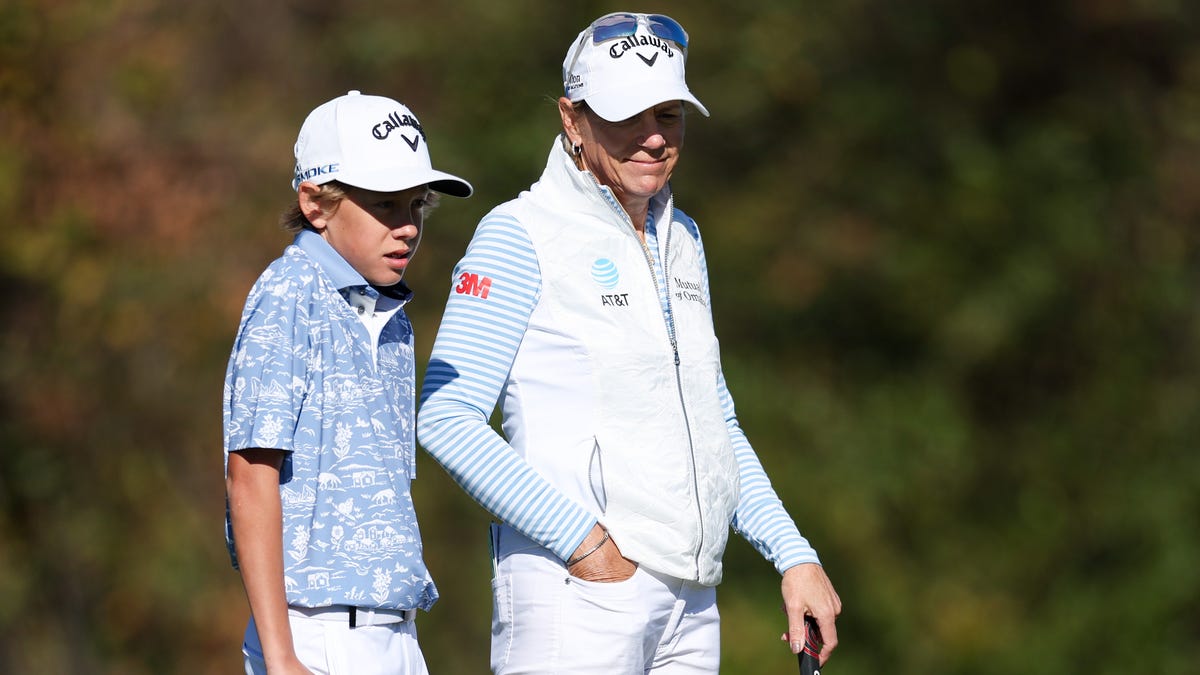
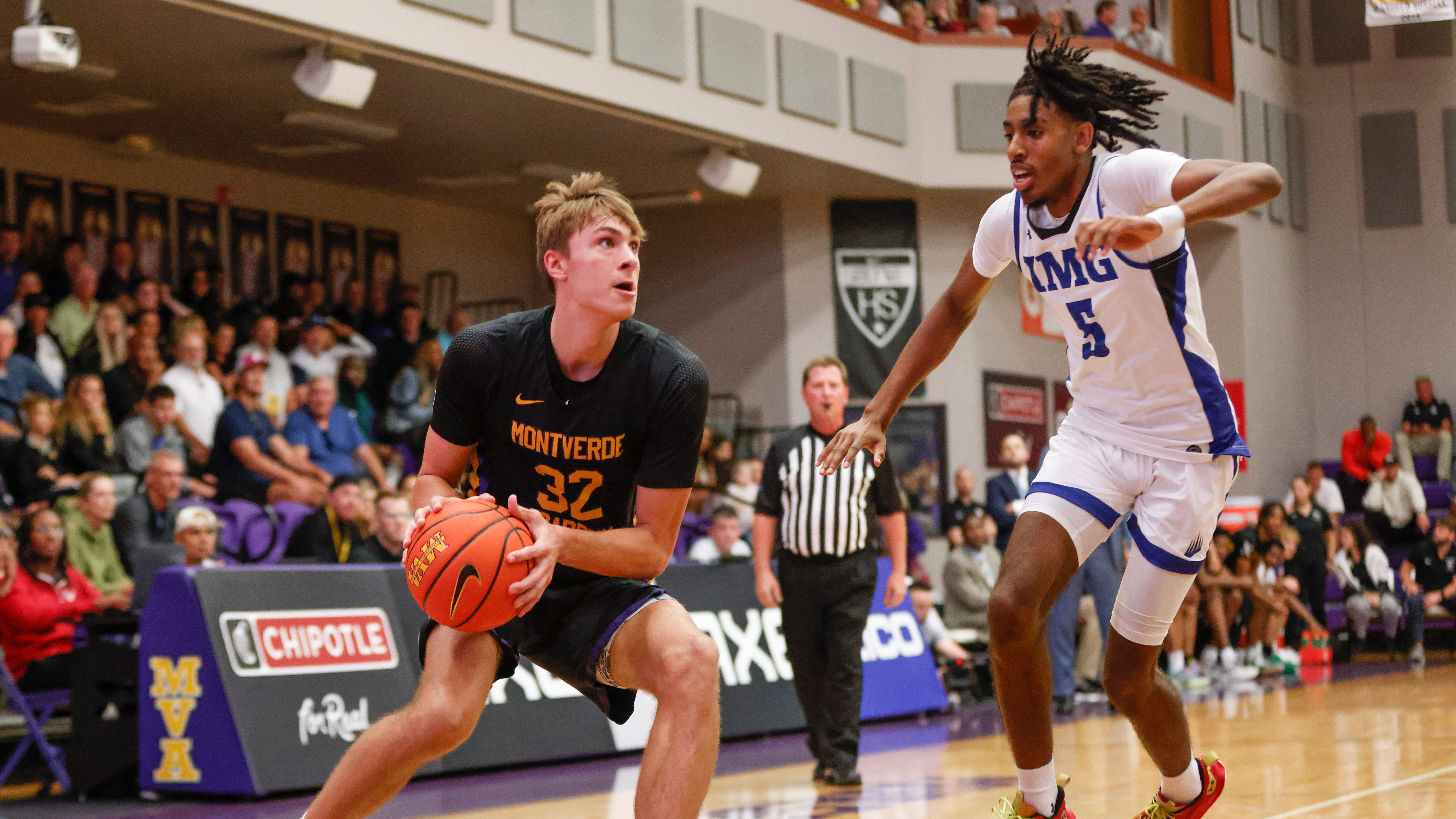
Cooper Flagg’s mom shares her best tips for parents navigating youth sports
Mackenzie Salmon sat down with Cooper Flagg’s mom Kelly to talk about how she successfully navigated the world of youth sports.
Sports Seriously
Have you been this kid?
“I wouldn’t raise my hand in class to answer a question in case I would say the wrong thing,” Annika Sorenstam says. “I was always afraid that my classmates would laugh at me.”
She would even miss on purpose – maybe hit a three-putt, maybe leave the ball at the bunker – coming down the stretch at junior golf tournaments so she wouldn’t have to speak in front of a crowd.
“They wanted the winner to give remarks of some kind, even at early ages,” she tells USA TODAY Sports, “just to kind of teach you more than the game itself, and I remember just being so afraid of it. I could finish second or third and still get a prize.
“But you can imagine that would haunt me because I practiced a lot and I’m very competitive and got home knowing that I could have won it.”
Sorenstam, who would go on to win 10 major tournaments, 72 events on the LPGA Tour and make hundreds of post-round comments, says shyness has always been her weakness. But today it’s a smaller hurdle she can clear because of lessons she learned from her parents and from sports that she has continued to apply.
She’s now a mom of two teenagers (Ava, 15, and Will, 14) trying like us to distinguish their individual traits, and to give them room to grown into them, like she did.
“I always tell people, ‘Get back to me in 10 years,’ ” she says. “I’ll let you know if it worked.”
Sorenstam, 54, has been instructing for 18 years through her ANNIKA foundation, which empowers and advances the cause of young women in golf and life. This spring and summer, she is running clinics for Bank of America’s “Golf with Us” program to help give more boys and girls access to experiences similar to what she had.
She doesn’t formally coach Will, her rising junior golfer, though.
“I’ve learned you don’t want to be a helicopter parent,” she says. “You’re so invested and you’re so engaged and you’re so caring. We all love them so much and we just want them to succeed, and then it’s just, how do you handle it?”
Here’s her advice for parents and their athletes to help us all figure out golf, sports and overcoming our fears.
Foster independence through enjoyment of sport
Sorenstam’s mother, Gunilla, would swing a golf club when she was pregnant with her. She jokes with her daughter about how the action propelled her into her future.
Sorenstam describes her development as more of “one of those slow loves.” Slow, indeed.
She grew up near Stockholm, Sweden, where she could whisk down ski slopes. Tennis, which she played for eight years, was her first love, not golf.
“I really didn’t like it in the beginning,” she says. “It was for older people and I wanted to chase a ball.”
Gunilla and her father, Tom, weren’t experts as much as facilitators for Sorenstam and her sister, Charlotta, who would also play on the LPGA Tour. The freedom to choose their favorite sport sparked curiosity.
“It was just giving us the resources,” Annika says. “Driving us to the golf course or driving us to the tennis tournaments, providing the stuff that we needed. Not like a coach or anything; it was more they’re loving parents and not very pushy and just kind of help us and guide us through the steps. And I think that worked quite well.
“I disappointed them in my own way, but not through the score. And I always felt like they had my back. And on the contrary, I wanted them to be pleased and happy with what I was doing.”
She reflects today with a knowing chuckle about how right it felt: the way the support built her up inside and helped her along her teenage journey.
A seminal moment came when she was 16, and she had found her sport. “I want to play golf,” she told her parents.
“I don’t think I really knew where the golf would take me,” she says. “It was more just kind of a hobby. I enjoyed playing. And then I got a little better. And then I played some tournaments. And then one thing kind of led to another.”
‘Go with the flow’: Instead of having expectations for your kid athletes, be willing to adapt and change as they do
It’s a process she started over again when her kids were very young and they traveled with her to golf events.
“They probably thought that was work,” Sorenstam says, “and that’s not what they wanted to do.”
These can be delicate times with our kids and their sports. We can teach lessons on grip, ball position and aim by sprinkling them in while playing with friends (“It’s very convincing when friends play a certain sport,” she says) or having putting competitions.
“I am a big believer in understanding the fundamentals of the sport early on,” Sorenstam says, “and then just let them learn and let them test.”
We don’t always have to emphasize drilling. We can take breaks, she says, to stack golf balls into pyramids or stress the concepts of the sport with a soccer ball.
“Introduce them to the game so it doesn’t become so focused on golf and having to do everything perfectly,” she says. “I think that’s when you lose your kid early, because it’s all this structure. There’s a fine line of having structure. There’s a fine line of having etiquette. And I think you have to find that balance.
“When your kid leaves the golf course or the driving range you want them to have a smile on their face. Then I think you’ve been successful.”
Over the years, we have seen Will’s eyes drawn to not only Tiger and Charlie Woods but to his mom as they play the course at the PNC Championship together.
“Slow down, Mommy,” he said in 2023 as they walked down the 18th fairway in Orlando, Florida. “I don’t want this moment to end.”
Will and his sister tried just about every other sport Sorenstam and husband Mike McGee played – “I was the mean mom; I didn’t give him a chance to play football,” Annika says – before Ava made the varsity softball team and he settled on golf. It’s all he wants to do.
Sorenstam has explained how she loves watching him become more of a feel player than her as he experiments with his shots. She sees a natural separation from us that comes with development.
“We practice a lot together,” Sorenstam says, “but he’s also kind of a student of the game, so about a year ago, I said, ‘I think you need to find a real coach’ and he was like, ‘Well, I want to work with you.’ I said, ‘That’s fine, but then you have to listen.’ That didn’t really work out very well so he’s working with somebody.
“It’s good to get a different perspective. I love to attend some of his lessons and learn so that when we do play, I can be of help a little bit, because I know what they’re working on. … I know a little golf and sometimes he wants to talk about it and I feel like I can add some value, and sometimes I’m just his mom and let him do his thing.
“You just gotta go with the flow. He asks a lot of questions, not so much technique with me maybe, but just (about) traveling and what was your greatest shot, your most important memory. I love to have that discussion.”
Coach Steve: When is it time to stop coaching your child in sports? Ask yourself these 3 questions
‘Feel the temperature’: Put your kids in situations to succeed, fail and express themselves
Golf was hard, but Sorenstam dove into the challenge to figure it out. It was like finding a missing piece of the puzzle that formed her identity.
Playing it was fun, but then it became terrifying.
Tom and Gunilla started to see a pattern in Annika’s near-misses at tournaments. They called ahead to an upcoming one. When it was complete, Annika was asked to say something.
“My reply was, ‘Well, I didn’t win,’ and they said, ‘We know, but we’d like to hear from you,’ ” Sorenstam says.
Her heart was pumping, her palms sweating. Her dad told her to grab her seven iron and say something simple like, “I let my clubs do the talking.”
“I realized after that, ‘Oh, that was it,’ ” she says, and public speaking became easier.
“It’s interesting how parents sometimes, they say we did so well, but she or he played so poorly,” she says. “It’s like they have a third person. I think it’s really important to separate the athlete vs. the human and just really understand that the sport is helping you to grow as a human being, and not vice versa. Be able to separate that and not judge by the score.”
Her dad’s was a calculated nudge she has learned to use as a parent herself.
She likes to ask Will three questions after he plays:
How did it go?
What did you do well?
What can you do better?
“And it’s kind of up to him. I’m not going to tell him: ‘I think you should do this better,’ ” she says.
He’ll tell her something, and then say, “I got it.”
“Whether he actually knows or not, he’s telling himself, ‘That’s probably what I need to do,’ ” she says. “And I think for us, it’s worked quite well, because I want him to be accountable and responsible for his own thing, and then if he doesn’t know, then just ask me. I don’t want him to feel when we get in the car ride home that he’s like trapped in a car, and I’m bombarding him with questions. You have to kind of feel the temperature.”
Coach Steve: Tips for the car ride home. Hint: Don’t be like Andre Agassi’s dad
It’s putting the power of the experience in our kids hands for their own self-discovery, she says, no matter what our level of accomplishment. We learn with each kid when to push and when to pull back.
“Hopefully he feels the safety net, but I’m only there if he needs it,” she says. “Otherwise, I’m just gonna let him do his thing because that’s how he learns. I’ve learned that myself: If he gets in a sticky situation, or if he’s on the golf course (and) it’s not working, he can’t ask me anyway. He’s gotta try to figure it out. So I might as well try to give him all the help early on and let him learn from his mistakes.”
‘The goal is to make great individuals’: We can go the distance with sports
The message with Will is one Sorenstam emphasizes to young golfers, whom she worked with in Phoenix in May and tentatively plans to see at clinics in Denver (August) and Austin (September) through “Golf with Us.”
Bank of America is offering kids 6 to 18 a free one-year membership through June 15 to its Youth on Course program, which grants access to rounds for $5 or less at affiliated courses. The clinics are open to Youth on Course members in the market and to children from youth partner organizations like Boys & Girls Clubs of America.
Sorenstam says she’s not necessarily trying to create the next superstar but use golf, or whichever sport they choose, to help unlock things like dedication, curiosity, competitiveness and attention to fitness.
“The goal is to make great individuals that represent the sport, and not so much just result and performance,” she says. “It’s really tough today with pressure and expectations. It’s better if you can build a solid foundation and then once you have that, you can go out and be successful in whatever you choose.
“There’s so many things you can do within the sport, whether it’s running an event or sports marketing or manufacturing. If you love sports, there’s so many things you can do more than just play it and you can still be around the sport.
[Don’t forget sports writing.]
To help kids find the right fit, we can be engaged from a distance while letting them learn, explore, hit and miss on their own.
Kids are more resilient than you think, especially the shy ones.
“People think that people that have done well, it’s a straight line, straight journey; that you have no issues, you’re not scared, things come really easily,” she says. “But I think we all have weaknesses that we got to work on and try to improve.”
Steve Borelli, aka Coach Steve, has been an editor and writer with USA TODAY since 1999. He spent 10 years coaching his two sons’ baseball and basketball teams. He and his wife, Colleen, are now sports parents for two high schoolers. His column is posted weekly. For his past columns, click here.
Got a question for Coach Steve you want answered in a column? Email him at sborelli@usatoday.com
-
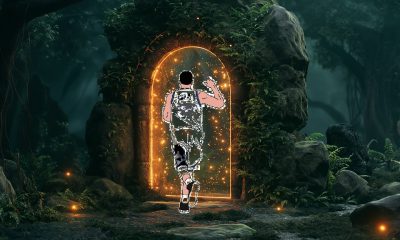
 College Sports2 weeks ago
College Sports2 weeks agoPortal Update – Basketball and Gymnastics Take Hits
-

 Rec Sports3 weeks ago
Rec Sports3 weeks agoThe Program, a New Basketball Training Facility, Opening in Greenpoint This September
-

 College Sports2 weeks ago
College Sports2 weeks agoPortal Update – Basketball and Gymnastics Take Hits
-
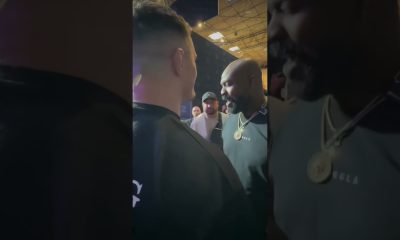
 Professional Sports2 weeks ago
Professional Sports2 weeks agoJon Jones answers UFC retirement speculation as fans accuse champion of 'holding the belt …
-

 NIL1 week ago
NIL1 week ago2025 NCAA Softball Tournament Bracket: Women’s College World Series bracket, schedule set
-
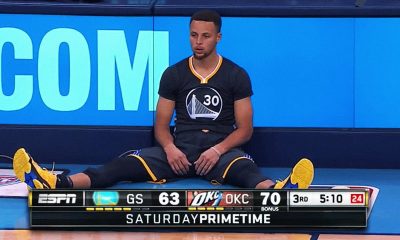
 Youtube3 weeks ago
Youtube3 weeks agoWhen Stephen Curry Shocked The World
-
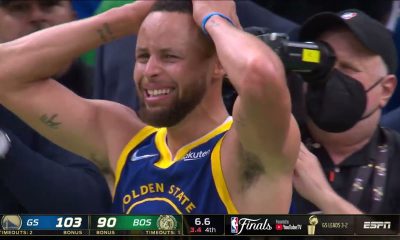
 Youtube3 weeks ago
Youtube3 weeks agoTHE FINAL CALL: Golden State Warriors 2021-22 NBA Champions
-

 Health2 weeks ago
Health2 weeks agoBYU women's basketball guard injures ACL twice
-
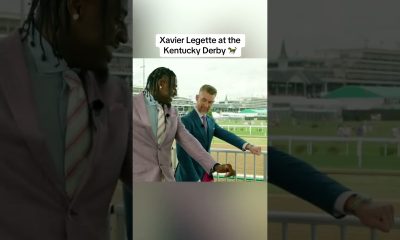
 Youtube2 weeks ago
Youtube2 weeks agoXavier Legette taught Marty Smith his signature celly
-
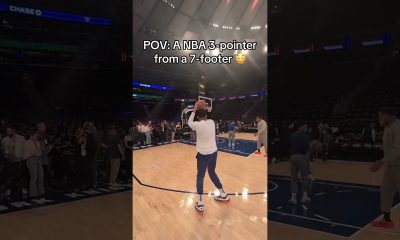
 Youtube3 weeks ago
Youtube3 weeks ago


































